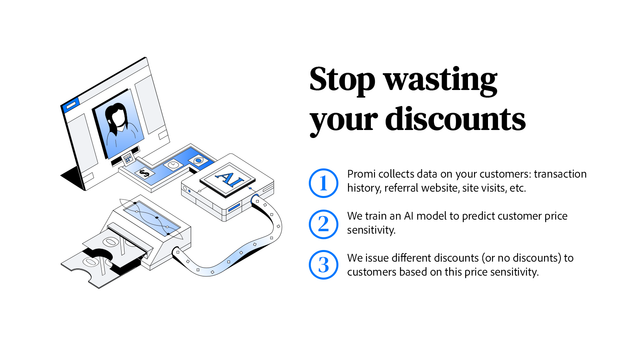In today's digital era, having a strong online presence is crucial for the success of any ecommerce business. And one of the key factors that can significantly impact your online visibility and drive more traffic to your website is search engine optimization (SEO). Understanding the importance of SEO in ecommerce is essential for any business owner looking to stay ahead of the competition and attract more customers.
Understanding the Importance of SEO in Ecommerce
In the highly competitive ecommerce landscape, where countless businesses are vying for attention, SEO plays a fundamental role in achieving online business success. With search engines becoming the go-to resource for consumers seeking products and services, ranking higher in search engine results pages (SERPs) is vital to drive organic traffic to your ecommerce site.
The Role of SEO in Online Business Success
SEO acts as a bridge between your potential customers and your online store. By optimizing your website's content, structure, and performance, you can ensure that search engines understand and rank your site for relevant keywords and phrases. The higher your website ranks in SERPs, the more likely it is to attract organic traffic and potential customers.
Key SEO Concepts for Ecommerce Websites
When it comes to optimizing your ecommerce site for SEO, there are several key concepts to keep in mind. One of them is keyword research. Choosing the right keywords for your product pages can significantly impact your search engine rankings. By understanding what your target audience is searching for, you can align your content and optimize your product descriptions accordingly.
In addition to keyword research, having a well-structured website is crucial. A clear and intuitive website structure not only makes it easier for search engines to crawl and index your site but also enhances the user experience. By organizing your website's content into categories and subcategories, you can make it more user-friendly and improve navigation.
Another important aspect of SEO for ecommerce websites is optimizing your site's performance. Slow-loading pages can negatively impact user experience and lead to higher bounce rates. To ensure optimal performance, it is essential to optimize images, minify CSS and JavaScript files, and leverage browser caching. By implementing these performance optimization techniques, you can provide a seamless browsing experience for your visitors, encouraging them to stay longer on your site and explore your products.
Furthermore, incorporating user-generated content can also boost your ecommerce site's SEO. Reviews, ratings, and testimonials from satisfied customers not only provide valuable social proof but also create fresh and unique content that search engines love. By encouraging your customers to leave reviews and ratings, you can enhance your site's credibility and improve its visibility in search engine rankings.
Building a Strong SEO Foundation for Your Ecommerce Site
Before diving into advanced SEO strategies, it's important to lay a strong foundation for your ecommerce site. This involves optimizing your website's basic elements to ensure maximum visibility in search engine results. Let's explore two essential aspects of building an SEO-friendly ecommerce site: choosing the right keywords and creating a well-structured website.
Choosing the Right Keywords for Your Products
Keyword research is the backbone of any successful SEO strategy. By identifying the keywords and phrases your potential customers are using to search for products similar to yours, you can optimize your pages to rank higher in relevant search results. Tools like Google Keyword Planner can help you discover the most relevant keywords for your ecommerce business.
When conducting keyword research, it's important to consider not only the search volume but also the competition for each keyword. While high-volume keywords may seem appealing, they often come with fierce competition, making it harder to rank. On the other hand, targeting long-tail keywords, which are more specific and have lower search volume, can yield better results by attracting highly targeted traffic.
Once you've identified your target keywords, it's crucial to strategically incorporate them into your product titles, descriptions, and meta tags. However, it's essential to maintain a balance and avoid keyword stuffing, as search engines may penalize websites that engage in this practice. Instead, focus on creating high-quality, informative content that naturally incorporates your keywords.
Importance of a Well-Structured Website
A well-structured website is not only pleasing to the eye but also plays a vital role in enhancing your SEO efforts. By organizing your content into logical categories and subcategories, you make it easier for search engines to understand the hierarchy of your website. Additionally, a well-structured website improves the user experience by enabling visitors to navigate your site effortlessly.
When designing your website's structure, consider using descriptive and user-friendly URLs. Avoid using generic, auto-generated URLs and instead create URLs that include your target keywords and accurately describe the content of each page. This will not only help search engines understand your website better but also make it more user-friendly and memorable for your visitors.
In addition to a clear hierarchy and user-friendly URLs, consider implementing breadcrumb navigation on your ecommerce site. Breadcrumb navigation provides users with a trail of links that show their current location within your website's structure. This feature not only improves user experience but also helps search engines understand the context and relevance of your pages.
Furthermore, don't overlook the importance of internal linking. By strategically linking relevant pages within your website, you can guide both users and search engines to discover and navigate through your content more effectively. Internal linking also helps to distribute link authority throughout your site, boosting the visibility of all your pages in search results.
Optimizing Your Ecommerce Site for SEO
Once you have built a solid foundation for your ecommerce site, it's time to dive into more advanced SEO strategies. Two crucial aspects of optimizing your site for search engines are product page optimization techniques and enhancing site speed and mobile responsiveness.
Product Page Optimization Techniques
Your product pages are the heart of your ecommerce site. Optimizing them for search engines can significantly improve your chances of ranking higher in relevant search results. Start by crafting compelling and unique product descriptions that highlight the key features and benefits of each item.
Incorporate your target keywords naturally within your product descriptions, headers, and image alt tags. This will help search engines understand the context and relevance of your product pages. Additionally, ensure that each product page has a unique title tag and meta description, specifically optimized for the product it showcases.
Enhancing Site Speed and Mobile Responsiveness
Site speed has become a crucial ranking factor in recent years. Slow-loading websites not only frustrate visitors but also receive lower rankings in search results. Optimize the performance of your ecommerce site by compressing images, minifying CSS and JavaScript files, and leveraging browser caching.
Furthermore, with the increasing use of mobile devices for online shopping, having a mobile-responsive website is essential. Make sure your ecommerce site is mobile-friendly, offering a seamless browsing and shopping experience across all screen sizes. Responsive design not only improves user experience but also helps your SEO efforts, as search engines prioritize mobile-friendly websites when displaying search results on mobile devices.
Leveraging Content Marketing for SEO
Content marketing is an effective strategy that can boost your ecommerce site's visibility and attract organic traffic. By creating SEO-friendly blog posts and utilizing video content, you can engage your target audience and establish your brand as an authority in your industry.
Creating SEO-Friendly Blog Posts
Blogging is a powerful tool for demonstrating your expertise and providing valuable information to your target audience. Craft blog posts that are relevant to your niche and incorporate target keywords naturally. This will not only attract organic traffic to your site but also improve your search engine rankings.
When creating blog posts, aim for long-form content that thoroughly covers a specific topic or provides in-depth product reviews. This type of content tends to perform better in search results, as search engines prioritize comprehensive and informative content.
Utilizing Video Content for SEO Boost
Video content has become increasingly popular, with consumers preferring engaging visual content over text-based content. Leverage the power of videos to showcase your products, offer tutorials, or share customer testimonials. Embed optimized videos on your product pages and blog posts to improve engagement and attract more visitors to your ecommerce site.
Advanced SEO Strategies for Ecommerce
Once you have implemented the foundational SEO practices and optimized your website's content, you can take your ecommerce site to the next level with advanced SEO strategies. Two key strategies to consider are harnessing the power of backlinks and understanding and using schema markup.
Harnessing the Power of Backlinks
Backlinks, or inbound links from other reputable websites, are a strong signal to search engines that your site is authoritative and trustworthy. Acquire high-quality backlinks by creating valuable content that other websites would want to link to. This can be achieved through guest blogging, influencer collaborations, or obtaining mentions in industry publications.
However, it's important to note that quality matters more than quantity when it comes to backlinks. Focus on acquiring backlinks from authoritative websites that are relevant to your industry, as spammy or irrelevant backlinks can do more harm than good to your SEO efforts.
Understanding and Using Schema Markup
Schema markup is a structured data format that helps search engines understand the content and context of your webpages. By implementing schema markup on your ecommerce site, you can provide search engines with additional information about your products, such as price, availability, and reviews.
Schema markup helps search engines display rich snippets, which are enhanced search results that provide more detailed information about your products. These rich snippets can improve click-through rates and attract more qualified traffic to your ecommerce site.
Conclusion
Implementing effective SEO strategies is crucial for ecommerce businesses looking to increase their online visibility and attract more customers. By understanding the importance of SEO in ecommerce, building a strong SEO foundation, optimizing your site for search engines, leveraging content marketing, and utilizing advanced SEO strategies, you can achieve higher rankings in search results, drive more organic traffic, and ultimately boost your online sales. Keep these top SEO tips in mind and stay ahead of the competition in the competitive world of ecommerce.
Ready to elevate your Shopify store's SEO and user experience? Let Owlfred, your wise owl companion from OwlMix, guide you to the perfect tools for success. With our extensive directory of innovative Shopify apps, you'll find everything you need to optimize your online business. From marketing analytics to inventory sync, our tailored search experience makes it easy to discover apps that align with your ecommerce goals. Don't miss out on the opportunity to enhance your store's performance. Find your next Shopify app today and watch your business soar!













